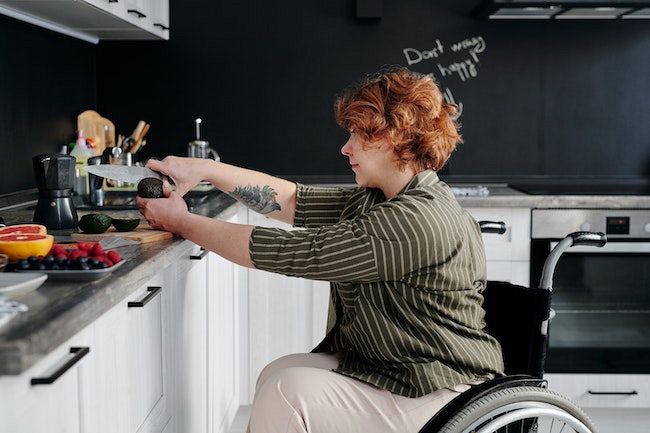Australia’s Disability Strategy National Forum, held from 2-3 November, addressed inequalities faced by people with disabilities across the country.
Advocates, athletes and politicians spoke about how we can improve the lives of people with disabilities. Issues including housing, employment, the NDIS and (to some extent) the attitudes society has towards people with disabilities were addressed during the forum.
Australian Capital Territory Minister for Disability Emma Davidson addressed the panel on one of the most significant issues facing people with disabilities: housing.
In the speech, she outlined how addressing housing for people with disabilities ought to focus on three main issues: affordability, accessibility and inclusivity.
In particular, the minister emphasised the way the relationship between housing and the way people with disabilities engage with society is intrinsically related.
Davidson said:
“Having accessible and affordable housing is essential for people with disabilities to live meaningful lives.”
Housing is a growing issue for thousands of Australians across the country and as a young woman with a disability, I am all too aware of this fact.
Now, people with disabilities aren’t the only ones to face marginalisation in the housing market. People from ethnically diverse backgrounds, low incomes and mature-aged Australians also experience a significant amount of bias and discrimination, which prevents them from gaining secure housing.
Some people with disabilities, much like some people from low-income or culturally diverse backgrounds, have been told that they just need to work hard when it comes to housing. Or, if provided social housing, they are assumed to automatically form a cohesive community.
However, as Jan Kruger, executive director of Imagine More, noted:
“The topic talks about home, which is much more than a house.”
Some may say people with disabilities are being picky, that we should be grateful if we are to gain any house at all. However, no one should be forced to live somewhere they do not feel comfortable and safe.
Whether you are elderly, young, ethnically or culturally diverse, able-bodied or have a disability, Australians deserve to have the means to thrive, not merely survive.
Inequality is all around us and addressing it cannot be done by increasing the prism of difference. However, change rarely comes by emphasising commonalities between communities.
As a young person with a disability myself, I realise that just as society often takes more notice of the differences I have in terms of ability, so too must people with disabilities emphasise the fact we require different aids and support to survive — a double-edged sword when just finding the means to support ourselves means trying to emphasise a desire to gain employment.
An important part of housing affordability is employment and ensuring people with disabilities can gain meaningful work that is flexible, accessible, fair and provides a living wage.
Despite social assumptions, many people with disabilities are both able and eager to work, myself included. But we need appropriate provisions to assist us in succeeding to ensure disadvantage does not turn into exploitation.
Social Services Minister Amanda Rishworth has announced a pilot scheme to support people with disabilities seeking employment.
As reported by The Guardian, Rishworth said:
'The rates of disability employment have remained largely unchanged for almost 20 years. Of course, not everyone wants to work. But it is vital we ensure the choice is there.'
People with disabilities are twice as likely to face unemployment than their able-bodied peers. Without employment, they can remain trapped in a cycle of poverty, unable to own their own homes and, in many cases, are stigmatised and judged.
As a young person with a disability, my options for employment are limited. Like many people, I studied hard at school, attended university and even started a freelance business, Framing the Narrative.
Whilst a part of this process can be attributed to a passion and desire to learn, write and achieve, it cannot be denied that it can also be explained by my knowledge that other options were limited.
The jobs market is tough enough in these uncertain economic times for anyone. I am brutally aware that despite laws preventing discrimination based on ability, I am unlikely to gain a job in retail or hospitality.
But I work hard. I push for opportunities. Like many across the country, I’m trying.
Melissa Marsden is a freelance journalist and PhD candidate at Curtin University. You can follow Melissa on Twitter @MelMarsden96, on BlueSky @melissamarsdenphd or via Melissa's website, Framing the Narrative.
Related Articles
- A new resolution could solve the housing emergency in Europe
- The unpredictable fall of housing prices
- Coalition’s hands-off housing policy points to 2019 election defeat
- Is the housing crisis leading millennials to invest differently?
- Mission Impossibubble: Taming the Australian housing (thought) bubble
 This work is licensed under a Creative Commons Attribution-NonCommercial-NoDerivs 3.0 Australia License
This work is licensed under a Creative Commons Attribution-NonCommercial-NoDerivs 3.0 Australia License
Support independent journalism Subscribe to IA.














